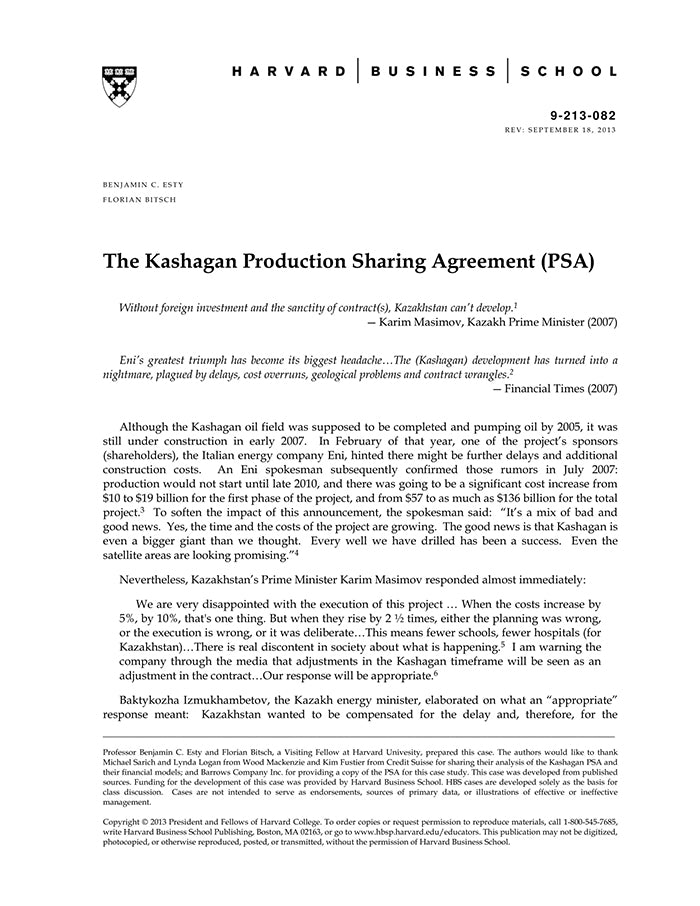The Kashagan Production Sharing Agreement (PSA)
受取状況を読み込めませんでした
When discovered in the 1990s, the Kashagan oil field was the second largest oil field in the world. The project sponsors (equity investors) signed a 40-year production sharing agreement (PSA) with the Kazakh government in 1997, with the expectation the field would be developed at a total cost of $57 billion and would be pumping oil by 2005. Unlike most contracts in the energy industry, the Kashagan agreement was a "flexible PSA" meaning the contractual terms-the allocation of risks and returns-depended on ex post realizations of such things as capital costs and profitability. The parties incorporated contingencies into the contract to make it fairer and more flexible, and to ensure it remain viable over the project's 40-year life. Due to a combination of problems and challenges, the project was still not done in mid-2007. At that time, the sponsors, led by the Italian energy company ENI, announced the project would not be completed until 2010 and the total cost was likely to be $136 billion. Although oil prices had risen dramatically between 1997 and 2007, thereby making the project worth considerably more, the Kazakh government indicated its desire to renegotiate key provisions of the contract. The sponsors had to decide whether to renegotiate the contract and, if so, which parts.
【書誌情報】
ページ数:22ページ
サイズ:A4
商品番号:HBSP-213082
発行日:2013/5/7
登録日:2013/10/17


